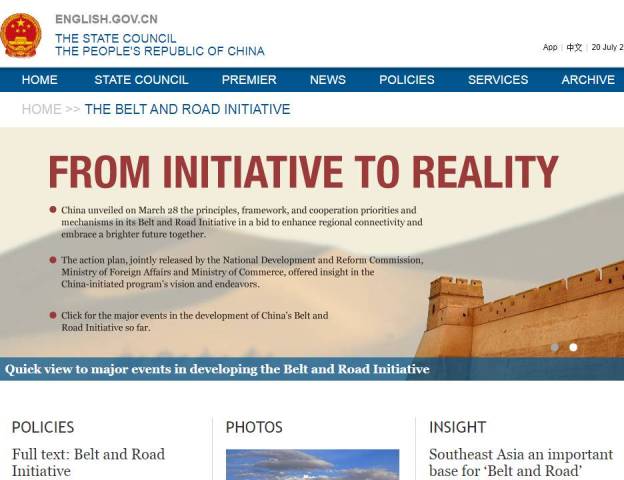 [photo: The website of The State Council, The People's Republic of China.]
[photo: The website of The State Council, The People's Republic of China.]
[This is an excerpt from an article appearing in the current edition of The Round Table: The Commonwealth Journal of International Affairs. Opinions expressed in articles do not reflect the editorial position of the Round Table Editorial Board.]
The Commonwealth needs a China policy. As China’s international presence grows, as it flexes global muscles, as our post-1945 global order crumbles, and as individual Commonwealth nations increasingly face their own China-related crises, it is surely time to express a common defence of human rights and democratic values.
Four recent factors have helped fuel the relentless rise of China: the controversial admission of China into the WTO; US withdrawal from its role as global referee or policeman; the 2008–9 global recession; and, now, the mishandled Covid-19 pandemic. The last two have hit the ‘West’ hard.
Now, it might be argued that it is a big ask for such a diverse club of 54 independent nation states with particular trading, economic, geo-political and strategic goals, to put aside such self-interests to come together on a global concern.
But it is not without precedent. In the 1980s, the Commonwealth – albeit with one exception – came together to stand against apartheid, provoking sports and trade boycotts, and worldwide moral condemnation, which led, eventually, to the desired results.
Today, many Commonwealth members find themselves increasingly out of step with China. Britain is offering 3 million Hong Kong citizens a right to settle in the UK after Beijing has ridden roughshod over its 1997 international treaty guarantees of the rule of law and human rights in the former crown colony.
A basketball manager posts a message supporting Hong Kongers, and the whole NBA franchise is banned from visits to the mainland. Airline staff protest, and their planes cannot land.
‘There will be consequences,’ is the mantra of Chinese ambassadors these days in every major capital.
Australia is the latest country to feel China’s wrath, facing prohibitive tariffs on key exports of barley and beef, disincentives for Chinese students to study there, even a potential Chinese tourism boycott.
India is embroiled in sinister border skirmishes, the worst since the 1960s war. This has left an air of suspicion and competition between two global giants, and soldier fatalities on both sides. The tensions continue to simmer.
Meanwhile, a host of Commonwealth countries across Africa and Asia wrestle with the consequences of embracing China’s much-hyped One Belt One Road (OBOR) initiative and enticing infrastructure projects.
Behind OBOR is ‘smart’ economic power at work. Each investment involves a grab of rare earth mineral rights, natural resource management or strategic access to ports, with no durable legacy in terms of skills and labour training.
China has also been busy challenging the global architecture of the world. The UN, already with too much on its plate, faces constant vetoes as China (along with Russia) seeks to protect its spheres of influence. The World Bank faces a Chinese home-grown rival in the Asian Infrastructure Investment Bank, busy buying global influence. International trade is being undermined as WTO rules are ripped up by President Xi, and now by President Trump, while the Chinese-led BRICS Contingency Fund is setting alternative international financial rules to the IMF, pumping up the G20 over the G7.
Paul Flather is with Mansfield College, Oxford, and is Former Secretary-General, Europaeum , New York, NY, USA. He is also a member of the Round Table Editorial Board and Chair of its Web Advisory Group.



